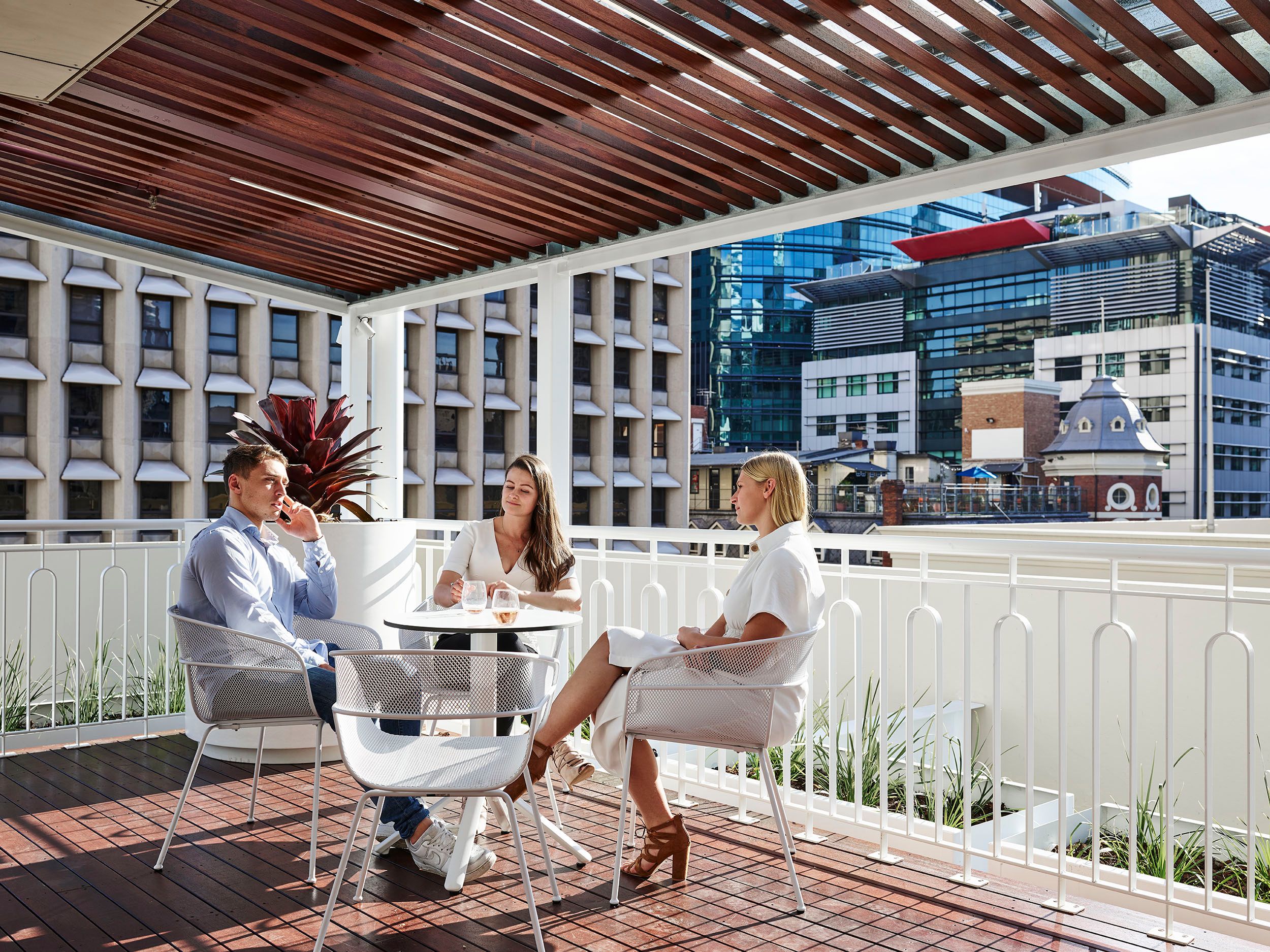2021 has offered a fresh start for businesses around the world, and forced business leaders to re-examine their processes, standards, and expectations to help create workspaces and styles that help their teams love where they work.
Hub Australia offers businesses with premium co-working spaces, offices, desks, and event and meeting spaces around the country.

Brad Krauskopf, Hub Australia CEO
We’ve been in operation for over 10 years, and our business model is focused on adaptability and flexibility – our members range from freelancers to large Government and Corporate teams, which means we get to interact with and learn about the needs of businesses from all sizes and industries as they occur.
There are common themes emerging from conversations being had by Australian founders and business leaders as they navigate how to attract and retain the best talent, how to help their teams work together with a great culture, and how to meet the demand for flexibility at work.
Hybrid work arrangements
Hybrid work involves embracing multiple workstyles and locations, each with its own benefits and hurdles.
For some, it may involve two days working from home and three in the office, others may come into and leave the office early to avoid high-congestion commute times, and some people may choose to work in an alternate space, such as a coworking space, nearer to their home rather than travelling to the nearest city centre.
Hybrid working is completely customisable, and uses flexibility to suit individuals needs.
Why is it being so widely adopted?
Flexible work arrangements have long been a key feature of some of Australia’s best workplaces, providing options that acknowledge the importance of people’s lives outside of work.
Many businesses cite these hybrid arrangements as an important tool in helping them attract and retain the best staff, and the benefits have been cemented as businesses negotiate a return to the office that works for everyone.
How businesses are saving money with hybrid work
An important benefit for a business’s bottom dollar is the potential saving offered in real estate – if employees are in the office part-time, it’s likely more appropriate for teams to shift to a desk-share situation where each team member’s rosters’ a desk while in the office.
With the rise of coworking spaces providing flexible office solutions for businesses of all sizes, many members have switched to this hybrid model, allowing them to leave traditionally-leased offices and choose a smaller fully-furnished space that offers additional memberships for others to use the office and amenities as needed.
Attract and retain the best staff
The prioritisation of flexible working has made the competition to attract the best talent even more high-stakes. Attraction and retention efforts for every business involve closely listening to what the workforce of the future is demanding.
Finding someone with the right skill set, work ethic, and social fit is essential, and it’s equally important to retain high-quality employees who are confident, competent, and an asset to your team.
Focus on company culture
Workplace culture is the difference between not only the enjoyment of a role but the all-round experience and satisfaction. A business succeeds when employees not only attend work but are actively engaged and passionate about what they do.
Having a good company culture doesn’t just help you retain employees – as younger generations move towards becoming the majority of the workforce, it’s important to revisit your changing team’s priorities.
- People are more likely to become brand advocates if they feel appreciated and proud of their company culture.
- Employees want to enjoy coming to work – it’s worth investing in well-designed workspaces, with morale affected by elements like amenity, natural light, and the presence of plants.
- Studies with Millennials and Gen Z participants repeatedly show that they care about more than coming to work each day for a paycheque, prioritising internal culture, work/life balance, community, and impact with their choice of employer.
Grow Your Business’s Impact
Impact motivates a large amount of the population, with a growing expectation for businesses to make a tangible difference to their industries and communities. Every business can incorporate measures that allow them to minimise their impact on the environment and maximise the positive impact they have on their communities.
Certification and accountability
Hub Australia joined the B Corporation community almost 8 years ago to ensure the business was held to the highest standards of social and environmental performance, transparency, and accountability.
Along with over 250 other Australian businesses, this commitment underpins all Hub’s social and environmental impact initiatives and is an essential part of our business model.
The carbon neutral certification of our operations and each of our locations, achieved in 2020, ensures our members and customers can be confident of the wider impact of their choice of workspace, with each membership and desk contributing to Hub’s carbon neutrality, environmental efforts, and social programs including our Flexi Impact program.
Customer and employee choice
There’s long been a growing social movement towards sustainability, ethical production, and equality, and with growing visibility around the repercussions of environmental change and social impact, customers and employees are making decisions with their wallets and time more than ever, choosing to support and be part of businesses that live something bigger than their bottom line.
“We don’t just give lip service to impact – we’re a B Corporation and carbon neutral certified to prove that we follow through on our promises.”
- Brad Krauskopf is the CEO of Hub Australia




















Trending
Daily startup news and insights, delivered to your inbox.